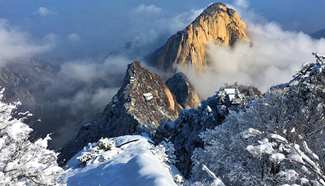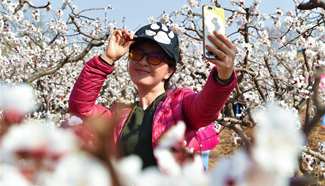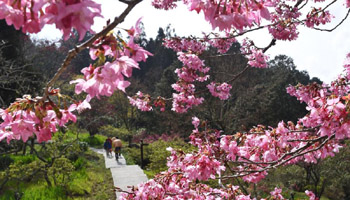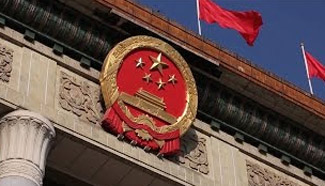LHASA, March 13 (Xinhua) -- After just three years in Pumaqangtang, China's highest township, Kelzang Chola has already developed signs of aging -- severe memory deterioration, hair and weight loss.
As party secretary in a township where the average life expectancy is less than 50 years, the 35-year-old always feels a sense of crisis.
"I dare not slack off at work. I know if I slow down, someone might never have the chance to enjoy a better life," Kelzang Chola said.
ROUGH CONDITIONS
Altitudes above 5,000 meters are considered highly unsuitable for humans, with severe effects on health. Pumaqangtang in southwest China's Tibet Autonomous Region, at 5,373 meters above sea level, is one such place.
Residents must contend with strong winds, biting cold and lower oxygen levels. Most people die before getting old.
"Strong wind can knock down telephone poles and even blow away the front door of our police station. On one occasion, we experienced a week-long power blackout," said Chen Kemin, political instructor at a border police station in Pumaqangtang.
With an average temperature of minus seven degrees Celsius, washing machines can only operate if they are warmed up with hot water for more than half an hour. People have to cover up with at least two quilts even on summer nights.
The lack of oxygen is the most challenging thing. People's lips appear blue because the amount of oxygen in the air is around 40 percent of that at sea level.
"Burning consumes the scarce oxygen, so we would rather cover up with more quilts to keep warm at night than burn a stove in the room," said border soldier Zhu Xing.
"I can even get short of breath sitting still," Zhu added.
The highlands can turn any minor illness into a major health threat.
"It is hard to recover from a cough by simply taking pills," said Sonam Norbu, who was on an antibiotic drip at a local clinic. Sonam Norbu married a local woman and moved here from Xigaze, Tibet's second-largest city.
Phurbu Dondrup, 23, is also a newcomer. Last year, he became an accountant in the township government after graduating from Jilin University in northeast China's Jilin Province, around 5,000 kilometers away.
"How can you endure the hardships of such a place? You can find a good job anywhere in China," his friends asked him.
But Phurbu Dondrup has never regretted his choice.
"I think young people should taste bitterness and endure hardships. That way, they will appreciate the better times and feel calm in the face of adversity," he said.
NEW LIFE AHEAD
Statistics show that the population of Pumaqangtang increased from 883 in 2000 to 1,031 last year. The average life expectancy, though still low, has risen from 40 years to the current 49.5 years.
"A cadre must have a strong body to work in Pumaqangtang," said Tsering Norbu, party secretary of Nanggarze County.
So must the soldiers protecting the frontier.
A border police station was set up in Pumaqangtang in 2012 to guard the 25-km border with Bhutan. Soldiers have to patrol the glaciers at an altitude of up to 6,300 meters.
"It's like living at Mount Qomolangma base camp," said Chen.
To improve local living conditions, officials have built 37 heat-retaining sheepfolds, seven fodder storage units and 34 shelters for herders over the past three years.
Thanks to the government support, Pumaqangtang was among the first townships in Tibet to eradicate poverty. Its average annual income per capita reached 10,110 yuan (around 1,500 U.S. dollars) in 2016, more than double the figure (4,000 yuan) in 2012.
"Without government support, we would not have the life we have today," said Dawa Butri, a local herder.
Dawa Butri earns 3,000 yuan a year, while her husband, an auxiliary police officer, is paid about 10,000 yuan a year.
Together with annual subsidies of over 10,000 yuan from the local government and 4,000 yuan in extra income from making pulu, a traditional Tibetan wool textile, the family's annual income is nearly 30,000 yuan.
"Subsidies will increase again by 1,000 yuan this year," she said.
Local people like Dawa Butri know better days lie ahead.
The government has set up several plants to process dairy and beef products to help herders increase their income, and low-income families have been given free use of nine vegetable greenhouses to make extra money.
Additionally, all villagers will move from their old houses of mud and stone to reinforced steel and concrete dwellings when the weather warms up in May.
Twelve-year old Dampa Raje already has a vision for his hometown's future. In his painting, "Pumaqangtang in my heart," snowy mountains tower in the background while lazy cattle dot the green hills. Just outside their beautiful houses, winding asphalt leads them on the path to a new life.












